By Dr. Arshavir Gundjian
Special to the Mirror-Spectator
On the 12th of May, 250 regular Azerbaijani army soldiers just strolled 3.5 kms past the borders of Syunik province onto the territory of the Republic of Armenia, as freely as regular tourists. They did not encounter any resistance. Apparently that number has now increased and has reached the thousand mark. It appears that there is nothing to prevent the same from occurring at the Armenian borders at Tavush as well as near the shores of Lake Sevan. What is next? Where else will it happen? Can they go all the way to Yerevan?
The present-day authorities in Armenia keep justifying the absence of any intervention by the Armenian army, arguing that this could be considered a violation by Armenia of that nefarious November 9 agreement, and consequently may lead to the restart of hostilities for which Armenia is not prepared.
In the meantime, the Armenian civilian population in the border regions is outraged. It feels abandoned, protests, searches alternatives for self-defense and is in a state of deep crisis. This unacceptable and intolerable tension leads every day to an increasingly more explosive situation, wherein the Armenian civil population is left in an unfair state of helplessness. Then an inevitable question begs an answer: Facing this threatening existential crisis, where are Armenians living in Armenia and beyond expected to find sources to support self-defense?
The perspective for a promising political turnaround from the forthcoming elections is unfortunately rapidly losing any likelihood. In the past six months period we all expected that beyond the two sworn enemies, Pashinyan and Kocharyan, with their faithful followers, new groups and individuals among the population of Armenia would emerge, with fresh political, diplomatic, economic, and military strategic ideas, thus providing Armenia’s electorate the option of electing to the helm of the country a new stable and capable government. Had such a strong and reliable third option turned up, an even broader coalition could have coalesced around it. However, to this date, it has not materialized, by now its formation seems to be quite unlikely.
It is unlikely that any of our Eastern or Western so-called ally or friendly large states will, merely for the sake of justice, help us to maintain the integrity of our borders, while we remain inactive and at best write petitions left and right asking others to intervene while enemy boots have already trod across our borders a long time ago.
After six centuries of stateless existence, we regained statehood a century ago by means of great sacrifices. Our reborn country has reached the highest international levels of successful development in the fields of culture, industry and the sciences, including military innovations. Nonetheless, today, as a result of the reigning political incompetence, the country is being lost piece by piece without having the possibility of firing even a single shot in defense.
In the face of this alarming situation, calls for new battles of Sardarabad are expectedly being raised in Armenia. In May 1918, however, the calls for the defense of the motherland were directed at the remnants from the Armenian massacres that were gathered in the limited areas of Sardarabad, Gharakilissa and Bash Abaran. Today the threat is spread along the entire borders of Armenia, excepting of course its friendly sections with Georgia and Iran. Also a large portion of Armenians live now beyond Armenia, throughout the vast spread of the diaspora. While it is unrealistic to expect the latter’s physical presence to defend Armenia’s borders, on the other hand it is imperative that it helps through other means its brethren who themselves have no choice but to raise physical barriers along the borders of all endangered regions to prevent any Azerbaijani or Turkish soldier from being tempted to repeat the Syunik precedent of unwelcome “touristic” trespass.
If the regular Armenian army, based on today’s authorities’ political calculations, will still be prevented to intervene, there remains no other alternative but for civilians and volunteer groups to create a human barrier to stop the enemy advance into Armenian lands by invoking once more the spirit of the heroes, and by ringing the bells, of the victorious battle of Sardarabad.
Under the present circumstances, the civilian population of border communities in particular must be trained and armed in order to be able to successfully perform their self-defense operations. Today, however, they are still not permitted to arm themselves. In all civilized nations where due to particular circumstances civilians are not properly protected by the official regular armed forces of the country, they are then authorized to arm themselves in order to protect their families and properties. In that respect the right for self-defense of the citizens of the United States of America is notorious as it is granted by a prominent article of the country’s constitution. It is imperative that with the probability of a forthcoming existential struggle in Armenia, authorities legalize and immediately grant civilians the right to bear arms for self-defense.
At this point, there is obviously no alternative. It is necessary to be ready along the entire length of the Armenian border to recreate the victorious battles of Sardarabad, or else be resigned to accept the reality of having to meet the enemy in the streets of Yerevan! That possibility had actually been impertinently evoked by Aliyev a few months back in one of his fiery warmongering speeches. At the time, we may have ignored those provocative statements. Now, on the other hand, our continuing to ignore such revolting possibilities would amount to sheer irresponsibility.
All of this can be prevented if the current or forthcoming governments of Armenia can successfully implement preventive diplomatic or military measures. It would also be desirable for our friendly and allied nations to take a firm stand and intervene immediately to neutralize the current existential threat to Armenia.
In the absence of the above two possibilities, Armenia’s current authorities must disclose if there is a convincing alternative to allowing the Armenian people to prepare for the eventuality of victorious new battles of Sardarabad.
(Montreal)

